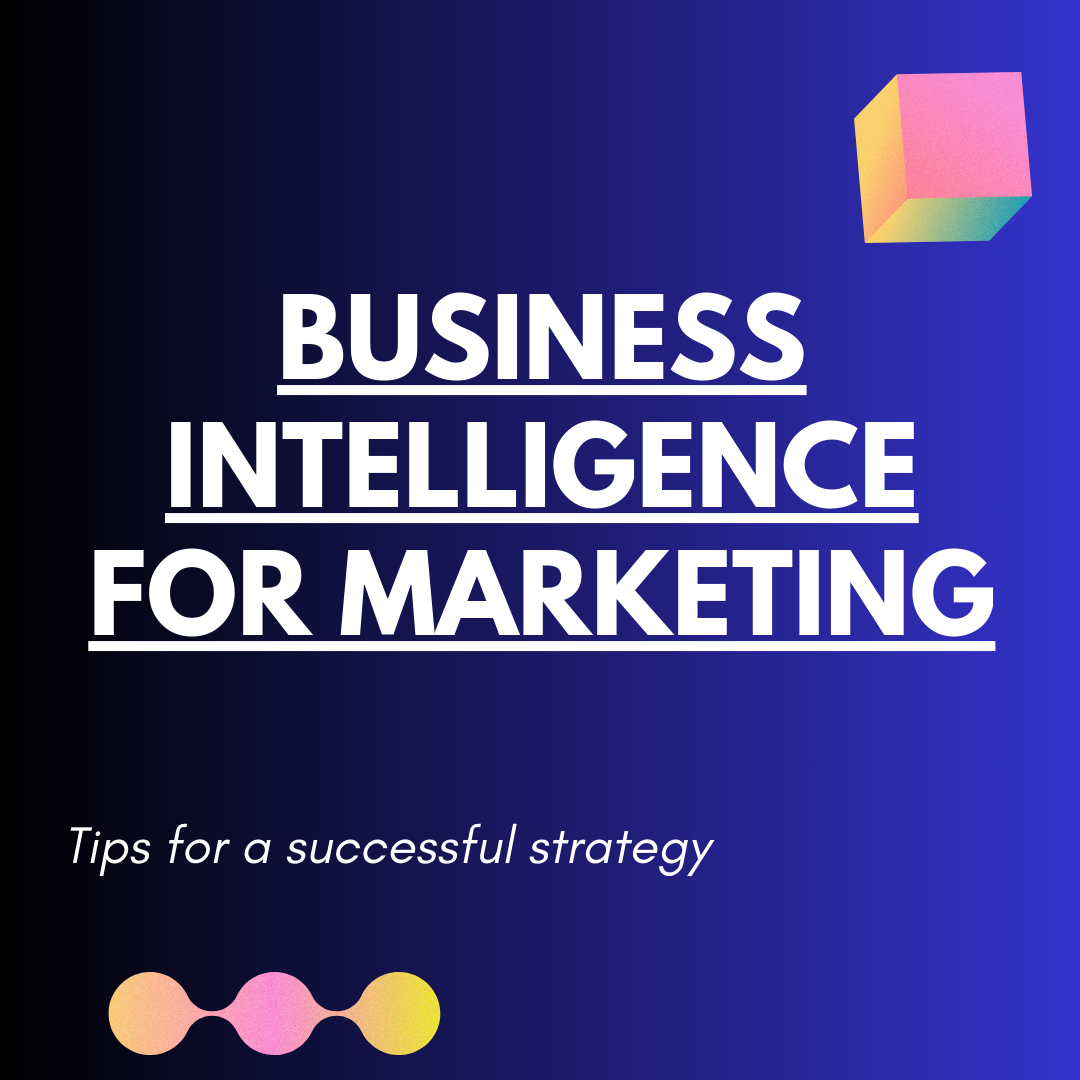Business analysis of information and communications methods and instruments are commonly referred to as business intelligence (BI) techniques and tools. It provides helpful data to help businesses make informed decisions. BI technologies in marketing allow companies to track campaign outcomes, understand how customers behave, and enhance their tactics.
Introduction
The digital world of today moves quickly, and marketing methods change quickly with it. To stay ahead of the rivals, companies need to use data to their advantage. Let me tell you to Business intelligence for marketing , the revolutionary tactic that is altering how corporations market themselves. This article looks at how business intelligence for marketing can enhance your marketing campaigns by rendering them more successful, bright, and focused.
What is Business Intelligence?
Business data analysis and communications methods and equipment are referred to as “business intelligence” (BI) methodologies and tools. It provides helpful details to help companies make sensible choices. BI technologies in marketing enable companies to track campaign the results, evaluate consumer behaviour, and tweak their strategies.

The Role of BI in Modern Marketing
Data has always been crucial for marketing, yet conventional tactics usually don’t achieve success. With the aid of statistical analysis (BI), marketers may better understand patterns, predict the future, and adjust their plans by using data to inform their decisions.
Key Components of Business Intelligence For Marketing
Data Collection
For effective BI Companies collect information from a range of sources, including social media, website analytics, correspondence with customers, and sales records.
Data Analysis
After data has been acquired, it requires to be evaluated in order to discover patterns and trends.. Business intelligence for marketing technologies transform unstructured data into meaningful insights through methods like statistical analysis and data mining.
Data Visualization
Complex data sets are made simpler to comprehend and analyse by dashboards, charts, and graphs, which helps marketers see trends and act quickly.
How Business Intelligence Enhances Marketing Strategies
Targeted Campaigns
With Business intelligence for marketing, marketers can segment their audience based on demographics, behaviour, and preferences. Campaigns that are highly targeted can be made possible by this segmentation, which enhances engagement and conversion rates.
Personalization
BI tools enables personalised marketing through the inspection of consumer data. Personalised offers and content improve customer satisfaction and loyalty by personalising the customer experience.
Performance Tracking
With the ability to monitor important metrics like click-through rates, conversion rates, and return on investment (ROI), marketers can more easily modify their plans and enhance their outcomes.

Implementing Business Intelligence in Your Marketing Strategy
Identifying Objectives
Before you use BI technology, determine what your marketing targets are. Are you trying to increase sales, draw in more customers, or build brand awareness? A few objectives will direct your choice of technology and BI strategy.
Choosing the Right BI Tools
There are different BI tools accessible and they all present different features. Popular options include Tableau, Microsoft Power BI, and Google Analytics. Choose those instruments that most closely match your specific needs and finances.
Integrating BI with Existing Systems
For best results, integrate BI technology with the current marketing systems, such as CRM platforms and email promotional products. The connection enables a smooth data flow and boosts overall efficiency.
Case Studies: Successful BI Implementations in Marketing
Case Study 1: E-commerce Success
BI was utilised by an online retailer to assess consumer buying trends and enhance their product suggestions. The business reported a 30% boost in sales by customising offers based on browsing behaviour.
Case Study 2: Social Media Marketing
A digital marketing business hired BI to analyse social media sentiment and traffic. They were able to modify their content strategy and improve follower engagement by 50% as a result of evaluating this data.
Challenges and Solutions in Using BI for Marketing
Data Privacy Concerns
The growing accumulation of data has only made the privacy dilemma worse. Establish rigorous data protection procedures in order to ensure that you follow standards like the GDPR.
Data Overload
An abundance of data can be debilitating.BI technologies can be used to filter and prioritise data so that you may zero in on what data that is most useful for the objectives of your marketing.
Skill Gaps
Expertise is needed to use BI effectively. Make sure your BI technologies function to their maximum potential, invest in worker training or bring in subject-matter specialists.
Future Trends in Business Intelligence for Marketing
Artificial Intelligence Integration
AI is going to have a significant role in organisational intelligence for marketing due to it’s ability to provide advanced analytics and predictive modelling. The ability to anticipate trends and further tailor marketing strategies will be boosted by this relationship.
Real-time Data Analysis
There is an increasing need for real-time insights. Future business intelligence (BI) systems will increasingly focus on delivering instantaneous data analysis in order facilitate decision-making.
Enhanced Data Visualization
It is believed that data visualisation innovations are going to get sophisticated and offer interactive and immersive experiences, allowing for easier for users to comprehend and use data insights.
Conclusion
Business intelligence is transforming marketing by making data into strategic assets. By using BI, businesses can create marketing strategies that are more successful, determined, and individualised. With fresh potential for creativity and accomplishment, the use of BI in marketing has great potential and will only grow as advances in technology occur.
FAQs
Which BI tools are frequently used in marketing?
How can BI help with customer segmentation?
What are the key metrics to track with BI in marketing?
Key indicators include items like click-through rates, conversion rates, ROI, and customer acquisition costs. Monitoring these measurements aids in the refining of promotional tactics.
Is BI suitable for small businesses?
How can I ensure data privacy with BI?
